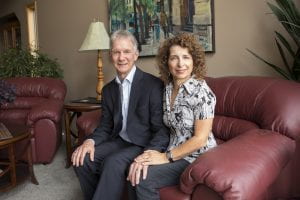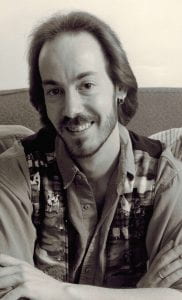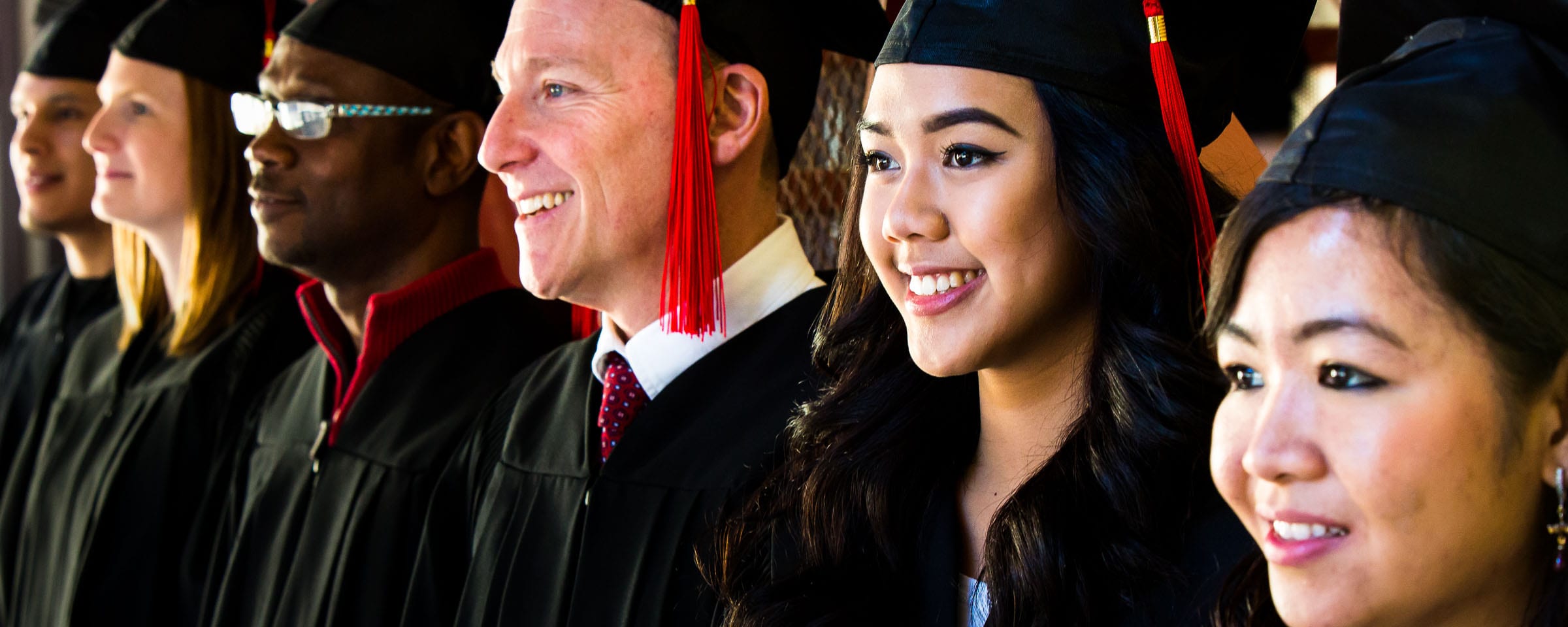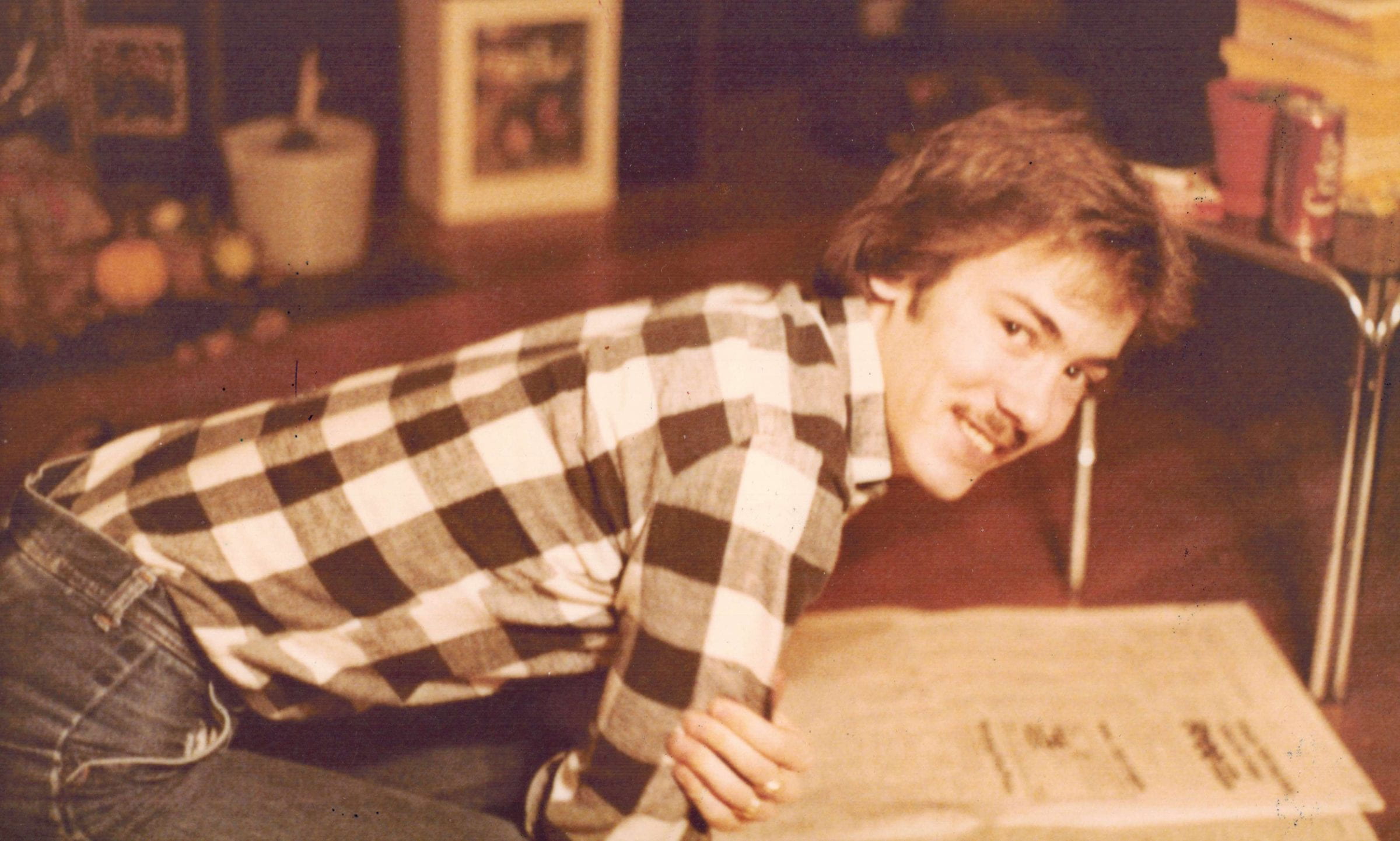A legacy of caring: New scholarship launched in memory of local activist
“I realize that alone, I will never stop poverty, hunger, war, etc., but by doing whatever I can to help those in need, I can set into motion a chain of events that could in fact make those kind of differences.”
— Richard (Asher) Webb
During his lifetime, Richard (Asher) Webb exemplified the philosophy that it’s better to light a candle than to curse the darkness.
A 1986 Computer Programming graduate who’d returned to Red River College to study Business Administration when he died at the age of 49 in 2009, Webb devoted his time, talent and irresistible enthusiasm to helping others, driving social and political change, promoting the arts and nurturing a universal sense of community.
“He was very outgoing — he was very social minded,” says brother Ken Webb, RRC’s former vice-president of Academic and Research. “He was a servant leader and a great organizer and a lot of his passion was around organizing groups and activities to make the world a better place.”
His family established the $750 Richard (Asher) Webb Social Justice Activist Memorial Award to honour and extend a legacy of kindness and caring, recognizing RRC students who inspire others through efforts to further “equity, inclusion and social justice through community engagement.”
Patrick Webb, who lives in Edmonton, says he’s proud of his late brother’s accomplishments on a great many fronts. A lifelong champion of the underdog, he didn’t just talk about equality and social justice issues, he did something about them, and he convinced others to join him.
“He wasn’t an armchair quarterback and a critic,” says Patrick. “He lived by his values and led by example and tried to get other people to do the same thing.”
When he lived in Vancouver in the early 1980s, Webb organized the city’s first hospice for HIV/AIDS patients, at a time when they were frequent victims of fear and misinformation.
“He gave his all to care for the terminally ill, many of them in hospice or hospitalized,” says his sister Linda Dyck, from Vancouver. “He helped ease many during the most difficult times of their lives. He cared for and provided emotional support for both the ill and their families, often to the very end.”
After graduating from RRC, he put his computer skills to work as information systems manager for the Village Clinic (now the Nine Circles Community Health Centre), and helped organize Winnipeg’s first HIV/AIDS conference.
In 1987, he was a founder of Winnipeg’s first gay pride parade, at a time when it took real courage to stand on the front lines in the battle for equal rights.
“He was very much about doing the right thing no matter how hard it was,” says Ken (shown below, with wife Barb). “It takes a great deal of courage and sometimes even sacrifice to bring about the social and cultural changes needed to build a just society.”
 Though he sometimes paid a high price as a leader, he also enjoyed and shared many of the rewards. A dancer and entertainer, the youngest of four Webb children supported the local arts community, working on behalf of the Winnipeg Fringe Festival, the Graffiti Gallery, the Osborne Village Cultural Centre (now the Gas Station Arts Centre) and other groups.
Though he sometimes paid a high price as a leader, he also enjoyed and shared many of the rewards. A dancer and entertainer, the youngest of four Webb children supported the local arts community, working on behalf of the Winnipeg Fringe Festival, the Graffiti Gallery, the Osborne Village Cultural Centre (now the Gas Station Arts Centre) and other groups.
A project coordinator for the B’nai Brith Human Rights Awards, he was committed to building safe, inclusive communities. He was a board member — and popular bartender — at Gio’s Club and Bar, and a leader in former mayor Glen Murray’s political campaigns.
As executive director of Osborne Village Biz from 1996-2007, his efforts to cultivate a strong, vibrant neighbourhood included establishing what is now the country’s largest Canada Day street festival.
“He was always in the centre of fun. He loved to get people involved in things and having fun,” says Barb Webb, his sister-in-law. “He was very engaged in the community and with every type of person. He was just in there to do the best he could for them.”
“Family was also very important to him,” says Linda. “As a teenager, he stayed up all night sewing beads on my wedding dress to make my day perfect when my dressmaker fell short. He loved cooking and family traditions, and shared his apartment with dad after we lost our mom.”
While he may have had few personal resources, he was generous with his time throughout his life. He earned citizenship awards as a student at Winnipeg’s General Byng School before a family move took him to Faro, Yukon at age 14. Student council president at his high school, he went on to represent the Yukon as a page in the House of Commons while he studied linguistics at the University of Ottawa.
While he didn’t win a seat on the RRC student council, he was active in student politics while studying the then-new field of computer programming in the 1980s. And when he returned to RRC to further his business education, he impressed fellow students with his wit, wisdom and warmth.
Ken says that at the time, his brother really wanted to enrol in the Creative Communications program.
“As capable, talented and successful as he was in the computer side, the business side, the organizational side, his true dream was to be a writer.”
 As it turns out, he was that, too. In the late 2000s, he wrote about an experience at a gay pride march a few weeks earlier, when he and a friend were approached by some young men who said it was nice to see men “their age” participating.
As it turns out, he was that, too. In the late 2000s, he wrote about an experience at a gay pride march a few weeks earlier, when he and a friend were approached by some young men who said it was nice to see men “their age” participating.
“After a couple minutes I walked over to the group of the young men and said, ‘A lot more men of our age would have loved to be able to attend the march … but they are no longer here. We belong to the “lost generation”… that group of gay men in their 40s and 50s who were part of the community in the ’70s and ’80s,’” he wrote.
“As I was standing there in line … it struck me how many of my peers I had lost … and it became all that more important to march. First to celebrate the lives of those who couldn’t be there with us, and secondly to bring them with us on a march where they are recognized, because when many of them passed they didn’t have the rights that we all enjoy now. When and if you take part in your Pride celebrations, please remember that you take all those people forward with you.”
Today, when Ken thinks about his brother’s legacy, he doesn’t think about a specific event, cause or achievement.
“It could be Gio’s, it could be the gay pride parades, it could be some of the first early hospice work in Vancouver, it could be any of the many people he helped,” says Ken. “But more, I think it was just the sum of all those things. He was always helping people who couldn’t help themselves very well.”
— Profile by Pat St. Germain (Creative Communications, 1989)

